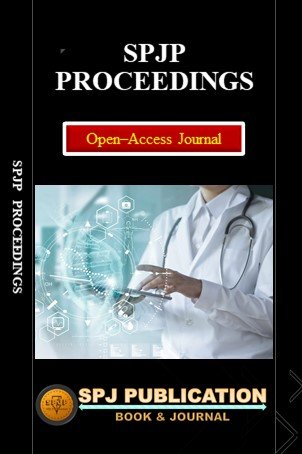
Publication Ethics
The SPJP Proceedings is committed to upholding the highest standards of publication ethics and integrity. Our policies are grounded in the principles of the Code of Conduct and Best Publishing Practices in scientific research. We aim to ensure the reliability and credibility of all research published in our journal.
Plagiarism
Plagiarism, which includes the misrepresentation of others' work or ideas as one’s own, is strictly prohibited. This encompasses:
- External Plagiarism: Using others' work without proper citation.
- Self-Plagiarism: Reusing one’s previously published work without adequate citation.
We utilize iThenticate software to detect and prevent plagiarism. All manuscripts must be original and properly cited to maintain academic integrity.
Peer Review
All manuscripts undergo a rigorous double-blind peer review process involving at least two independent experts in the relevant field. This process includes:
- Blind Review: Ensures unbiased evaluation by keeping the identities of authors and reviewers confidential.
- Review Duration: Typically takes 4-8 weeks, with authors receiving a final decision after this period.
- Revised Submissions: Revisions are treated as new submissions and may undergo additional review cycles.
Reviewers provide detailed, constructive feedback to help authors improve their manuscripts.
Conflicts of Interest
Authors must disclose any potential conflicts of interest that could influence their research, including:
- Financial Interests: Employment, consulting, ownership, patent applications, or honoraria.
- Non-Financial Interests: Personal, academic, or ideological conflicts.
For industry-funded research, a comprehensive declaration of the funder's involvement is required. If there is no conflict, authors must state that sponsors had no role in the study’s design, execution, or writing.
Patient Consent Forms
Research involving human participants must include an informed consent form detailing:
- Purpose: The study’s goals.
- Methods: Procedures used in the research.
- Risks and Benefits: Potential risks and benefits to participants.
- Alternatives: Other available options.
Manuscripts must include a statement confirming consent in the Material and Methods section. Editors may request copies of consent forms if needed.
Ethics Committee Permission
Manuscripts involving human or animal subjects must include:
- Human Studies: Institutional Review Board (IRB) approval with IRB number and protocol details.
- Animal Studies: Approval from the Institutional Committee on Animal Sources.
This ensures adherence to ethical research standards.
Editorial Responsibilities
Editors are responsible for:
- Decision-Making: Accepting, rejecting, or requesting revisions of manuscripts based on their significance, originality, and relevance.
- Confidentiality: Maintaining the confidentiality of all manuscript-related information.
- Conflict of Interest: Disclosing and managing any conflicts of interest to prevent bias.
- Editorial Integrity: Ensuring that decisions are based solely on the intellectual content of the paper, without regard to the authors' personal characteristics.
Authors' Responsibilities
Authors are required to:
- Follow Submission Guidelines: Adhere to the journal’s submission requirements.
- Ensure Originality: Guarantee that the manuscript is original, not previously published elsewhere, and properly cited.
- Declare Conflicts of Interest: Disclose any conflicts that could impact the manuscript.
- Correct Errors: Address and correct any substantial errors or inaccuracies discovered during the review or publication process.
Reviewers' Guidelines
Reviewers should:
- Assess Manuscripts: Evaluate based on novelty, significance, scope, quality, scientific soundness, and reader interest.
- Disclose Conflicts of Interest: Identify and report any potential conflicts.
- Maintain Confidentiality: Keep all manuscript details confidential and avoid disclosing their identity to authors.
- Provide Constructive Feedback: Offer specific comments and suggestions for improvement.
Publisher Responsibilities
The publisher must:
- Support Editorial Process: Assist the editor and editorial board in maintaining publication standards.
- Publish Corrections: Issue corrections, clarifications, and retractions as necessary to uphold the academic record.
- Preserve Research: Ensure the permanent availability and preservation of published research.
- Adhere to Good Practices: Follow ethical standards and best practices in publishing.
Penalties
- Duplicate Submission: Identified duplicate submissions will lead to the termination of the review process, an explanation to all involved parties, and a ban on submission for 1-2 years.
- Duplicate Publication: Intentional duplicate publications will be investigated and reported, with appropriate actions taken.
By adhering to these ethical guidelines, SPJP Proceedings aims to foster a transparent and trustworthy academic publishing environment.
